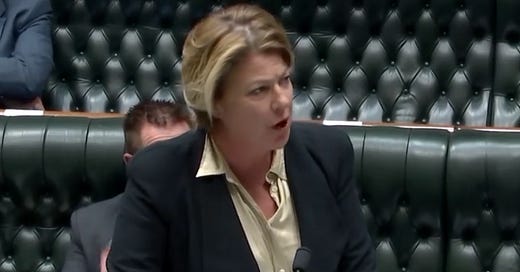
The government of New South Wales, Australia, has dropped plans to bring local Catholic cemeteries under state control, following public outcry and opposition from the Archdiocese of Sydney.
On Tuesday, the government confirmed that state premier Gladys Berejiklian had ordered the plan to combine five independent cemetery trusts into one government run body to be dropped, and sidelined the minister responsible for the decision.
The policy was first announced on May 25 by the Minister for Water, Property and Housing, Melinda Pavey, who argued that the consolidation was necessary to address a shortage of burial sites and financial shortfalls by the independent operators.
The plan was vigorously opposed by the Sydney archdiocese and the Catholic Metropolitan Cemeteries Trust, which was slated to be absorbed by the government. Both bodies argued that the care of Catholic graves was already fully funded, and land had recently been acquired for two new cemeteries.
Catholic leaders also expressed shock and outrage that there had been no prior consultation by the government before the decision was taken.
Sydney Archbishop Anthony Fisher, OP, called the policy and lack of consultation an act of “brazen disregard for people of faith” and warned in a series of public statements that the government plan would jeopardize the freedom of the Church to care for Catholic graves, and leave cemetery sites vulnerable to sale, relocation, and development by government ministers.
Writing to his clergy shortly after the policy was announced, Archbishop Fisher said that “The Catholic Cemetery Trust has successfully and reverently managed Catholic cemeteries for more than 150 years.”
“How can the government [make] claim to the legacy of over fifteen decades of care and reverent upkeep, as well as tens of thousands of dollars-worth of pooled assets from Catholic families for the maintenance of our cemeteries without even proper consultation?”
Now, the policy has been dropped for a new round of consultation and Pavey has been sidelined from the project. In her place, NSW deputy premier John Barilaro, who is also Minister for Disaster Recovery, will take charge.
“The politics got ahead of us, I’ll be honest,” Barilaro conceded June 8. “But it doesn’t mean there is not an opportunity to find a middle ground.”
Danny Casey, a governor of the Catholic cemeteries trust, said in response that “We want to continue serving the community, put past misunderstandings and disputes behind us, and move ahead as soon as possible.”
This week, 7 News Sydney reported that a two trust model was now being considered by the government, which would combine the four other cemetery operators but leave the Catholic trust intact and independent.
Leader of the opposition NSW Labor Party, Chris Minns, praised the state premier for “overruling a minister who’s made a bad decision.”
Archbishop Fisher led a concerted effort to oppose the policy, writing to all the priests of the archdiocese to encourage support for a public petition against the plan to annex the Catholic cemeteries trust. That petition gained nearly 20,000 signatures before the policy was revoked.
“Caring for the dead is a spiritual mission, not secular,” the archbishop told his priests in a May 27 letter.
“Our faith teaches that it is one of our ‘corporal works of mercy’ and this underpins the way we look after our cemeteries. The government seems to only really recognize cemetery property as a monetary asset without sensitivity to its spiritual element or the wishes of the families of the deceased.”
Fisher said the government was acting to address a lack of burial space in Sydney, unfunded liabilities across the five providers, and the need to ensure affordable funerals and burials for all people.
None of these problems affected the Catholic cemeteries, Fisher said, and the Catholic trust had “offered solutions that would solve each of these issues, and do so in a way that could be implemented immediately at no cost to the taxpayer.”






